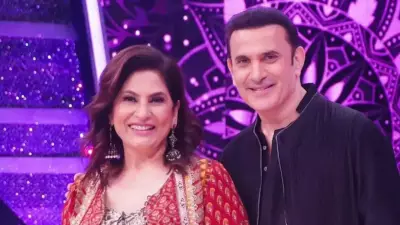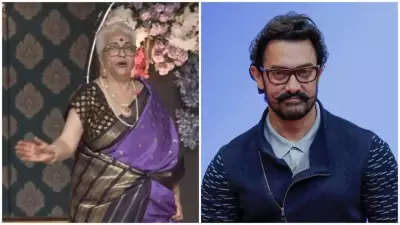
The appointment of Sarah Jessica Parker, best known for playing columnist Carrie Bradshaw in Sex and the City, as a judge for the prestigious 2025 Booker Prize has ignited a significant debate about the role of celebrities in literary awards. This move raises fundamental questions about whether famous personalities without formal literary credentials should be deciding the world's most respected book prize.
The Great Literary Debate: Celebrities as Taste-Makers
Two prominent publications presented contrasting perspectives on this issue following Parker's appointment. The Guardian published a critical piece by Emma Brockes that examined the rise of celebrity book clubs and what she terms social-media "bookishness" with healthy skepticism. Brockes pointed to numerous examples of celebrities using books as props for lifestyle branding, including Natalie Portman posing with Virginia Woolf and Emma Roberts arranging Joan Didion beside a sleeping infant.
Brockes argues that when books become mere accessories for signaling intellectual leanings, we risk losing sight of the serious, often solitary experience that genuine reading requires. Her critique extends beyond celebrity book clubs to question whether visible readers, rather than the most qualified experts, are becoming the arbiters of literary taste.
The Committed Celebrity Judge: Parker's Serious Approach
Contrasting sharply with this skepticism, Alex Marshall's profile in The New York Times presented Sarah Jessica Parker as the antithesis of the frivolous book-poser. According to the detailed profile, Parker approached her judging responsibilities with remarkable dedication, reading an impressive 153 novels, taking extensive notes, and rearranging her family life to accommodate the demanding process.
Marshall portrayed Parker's transformation from a pleasure reader to a serious literary judge facing the "agony" of whittling down hundreds of books to a longlist of just 13 titles. Her refreshingly honest anxieties about her judgments—"Am I wrong about this book?"—suggested genuine engagement with the responsibility. However, this earnest approach still raises the question: are sincerity and commitment adequate substitutes for years of literary expertise?
The Celebrity Eclipse Effect
Ironically, Parker's presence on the Booker panel generated equal, if not more, public attention than the 2025 winner himself, David Sazaly. Sazaly's victory came as a particular surprise to literary observers, with established authors Kiran Desai and Andrew Miller being the bookmakers' favorites before the announcement.
Yet media conversations frequently centered more on Parker's role in the selection process than on Sazaly's unexpected triumph. This phenomenon highlights a crucial concern: when a celebrity joins a literary institution, does their star power inevitably overshadow the literature they're meant to celebrate? The Parker effect, while generating valuable headlines, risked turning the prize into a narrative about celebrity credibility rather than literary achievement.
Finding the Right Balance
The solution isn't to reject celebrities entirely or embrace them uncritically. Literary awards should maintain critics, scholars, and authors as the backbone of judging panels, as they bring the trained eye and historical awareness the task demands. Celebrities who genuinely read and care about literature, like Parker, can contribute valuable perspectives as representatives of the passionate reading public, but not as replacements for deep expertise.
The essential distinction remains that cultural reach and critical judgment, while both important in an age of countless distractions, are not interchangeable skills. As the debate continues, the fundamental question persists: should a celebrity be chosen to judge the Booker because they want to, because they read extensively, because they have a platform, or because they have a demonstrated history of critical engagement with literature?
The answer may lie in transparent judging criteria and recognizing that while everyone can read, not everyone should judge. The most qualified person for a judge's chair isn't always the most famous one sitting in it.






